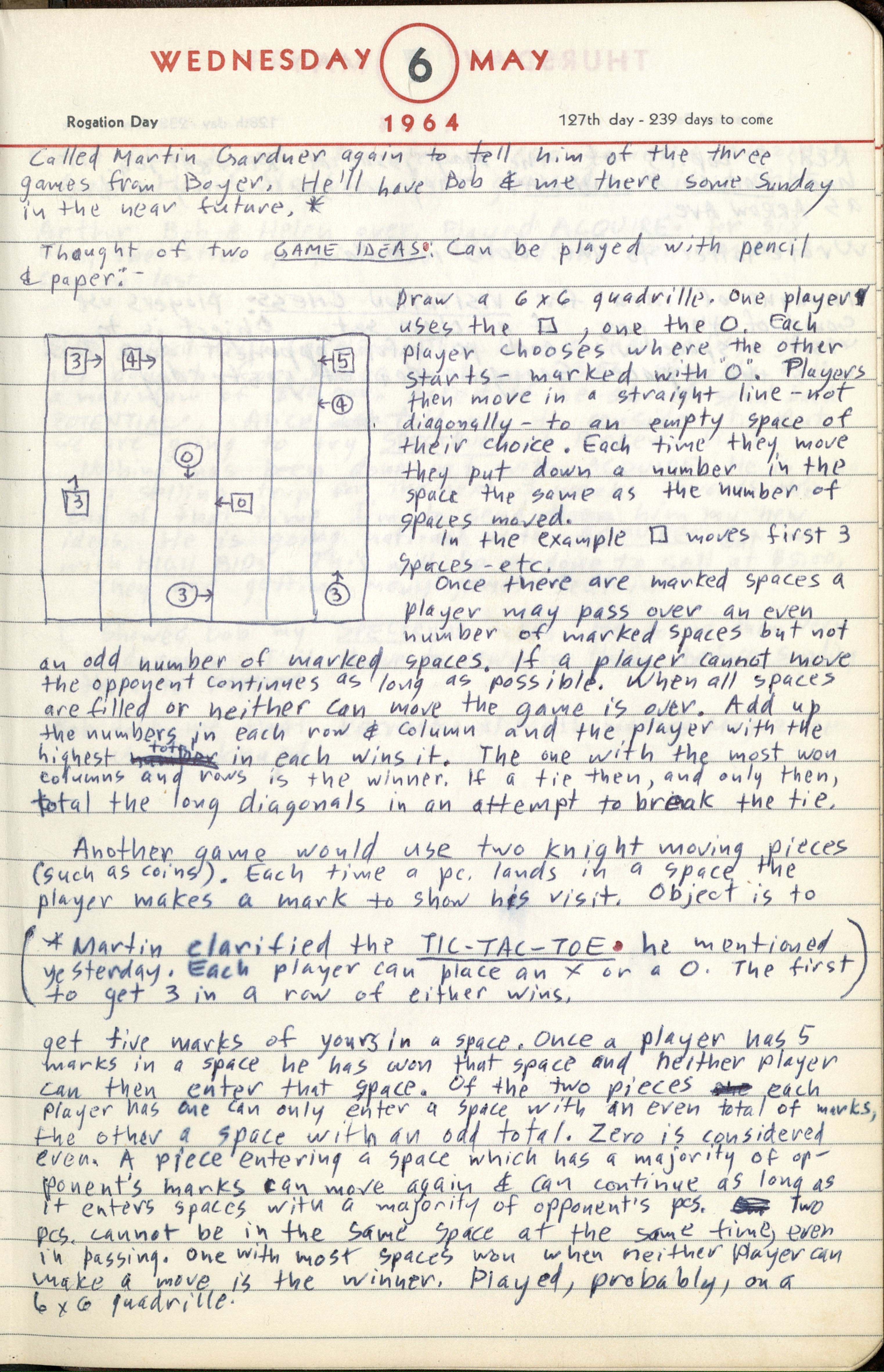Notes for 1964_Sackson_147_May 06.jpg: Page #1
Original title: 1964_Sackson_147_May 06.jpg

Transcription
WEDNESDAY 6 MAY Rogation Day 1964 127th day - 239 days to come
Called Martin Gardner again to tell him of the three games from Boyer. He'll have Bob & me there some Sunday in the near future. [asterisk]
Thought of two GAME IDEAS. Can be played with pencil & paper. -
[diagram of 6 x 6 grid with square and circle pieces]
Draw a 6 x 6 quadrille. One player
uses the [square], one the [circle]. Each
player chooses where the other
starts - marked with the "[circle]". Players
then move in a straight line - not
diagonally - to an empty space of
their choice. Each time they move
they put down a number in the
space the same as the number of
spaces moved.
In the example [square] moves first 3
spaces - etc.
Once there are marked spaces a
player may pass over an even
number of marked spaces but not
an odd number of marked spaces. If a player cannot move
the opponent continues as long as possible. When all spaces
are filled or neither can move the game is over. Add up
the numbers in each row & column and the player with the
highest number total in each wins it. The one with the most won
columns and rows is the winner. If a tie then, and only then,
total the long diagonals in an attempt to break the tie.
Another game would use two knight moving pieces (such as coins). Each time a pc. lands in a space the player makes a mark to show his visit. Object is to
([asterisk] Martin clarified the TIC-TAC-TOE he mentioned yesterday. Each player can place an X or a O. The first to get 3 in a row of either wins.)
get five marks of yours in a space. Once a player has 5
marks in a space he has won that space and neither player
can then enter that space. Of the two pieces the each
player has one can only enter a space with an even total of marks,
the other a space with an odd total. Zero is considered
even. A piece entering a space which has a majority of op-
ponent's marks can move again & can continue as long as
it enters spaces with a majority of opponent's pcs. On Two
pcs. cannot be in the same space at the same time, even
in passing. One with most spaces won when neither player can
make a move is the winner. Played, probably, on a
6 x 6 quadrille.